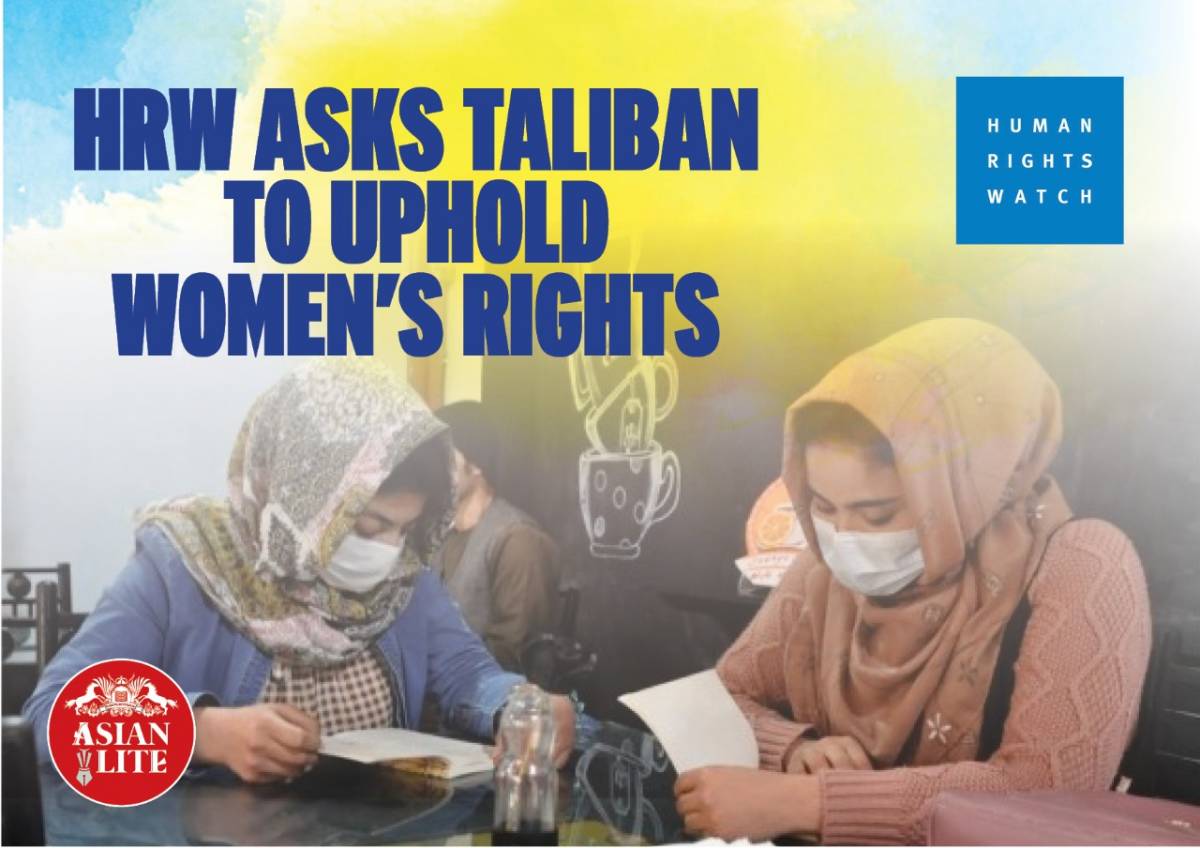Human Rights Watch accused Taliban regime in Afghanistan of breaking promises given to the US administration as part of the Doha peace accord. The rights forum accused Taliban of unleashing terror at Herat
Women in Herat told the HRW that their lives had been completely upended the day the Taliban took control of the city. The women had been employed outside their homes or were students and played active and often leadership roles in their community. They said that immediately after the Taliban’s arrival, they found themselves trapped indoors, afraid to leave their house without a male family member or because of dress restrictions, with their access to education and employment fundamentally changed or ended entirely.
They said they faced economic anxieties due to lost income and their inability to work. They also faced distress and other mental health consequences as they contemplated an abrupt end to the dreams they had worked toward for many years.
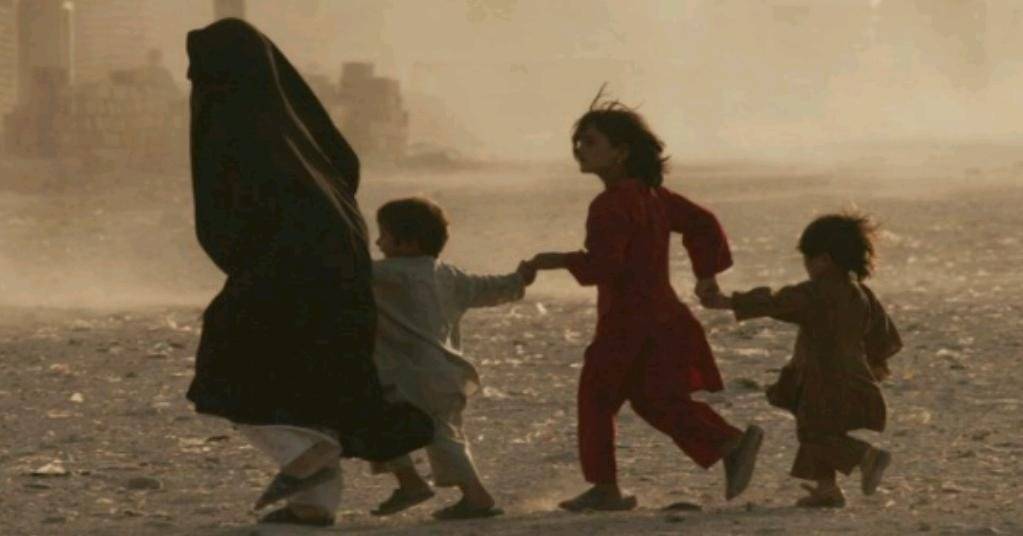
Human Rights Watch and the San Jose State University (SJSU) Human Rights Institute conducted a study on Taliban abuse in Herat since taking over the city on August 12, 2021. They said Taliban have instilled fear among women and girls by searching out high-profile women; denying women freedom of movement outside their homes; imposing compulsory dress codes; severely curtailing access to employment and education; and restricting the right to peaceful assembly.
“For the women in Herat we interviewed, life as they knew it had vanished overnight, and they were left hiding indoors, waiting in fear to see whether the Taliban would come for them,” said Halima Kazem-Stojanovic, a core faculty member of SJSU’s Human Rights Institute and a scholar on Afghanistan. “For these women, the best-case scenario is to be unharmed but forced to live a drastically diminished existence. The worst-case scenario is to be arrested or attacked for their past achievements or for their fight to keep their hard-earned rights.”
Human Rights Watch and the SJSU Human Rights Institute conducted in-depth interviews by telephone in Dari with seven women in Herat, including activists, educators, and university students, about their experiences since the Taliban took over the city. The women all spoke on the condition of anonymity, out of fear for their safety.
Women in Herat were among the first to organise protests in defence of women’s rights after the Taliban gained control of Kabul and most of the country. Organisers and protesters said they were not engaging in anti-Taliban protests or supporting the former government but were calling for the Taliban to respect their rights: to live without fear of reprisal against them and their family members; to be able to continue going to their jobs without requiring a mahram (male family member as a chaperone); and to have girls above grade six return to school.
Within days of the Taliban takeover of Herat, a group of women asked to meet with local Taliban leaders to discuss their rights, and several days later they were able to meet with a Taliban representative. However, the official was inflexible: he told the women to stop insisting on their rights and that if they supported the Taliban, they would be rewarded with full amnesty for their past activities and maybe even get positions in the new government.
Some of the women felt they had no choice but to protest and organized two demonstrations. About 60 to 80 women attended the first one, on September 2, and the Taliban did not intervene. But the Taliban’s response to the second protest, on September 7, was violent and abusive. Taliban fighters lashed protesters and fired weapons indiscriminately to disperse the crowd, killing two men and wounding at least eight more. The Taliban subsequently banned protests that did not have prior approval from the Justice Ministry in Kabul, ordering organizers to include information about the purpose of any protests and slogans to be used in any requests to the ministry.
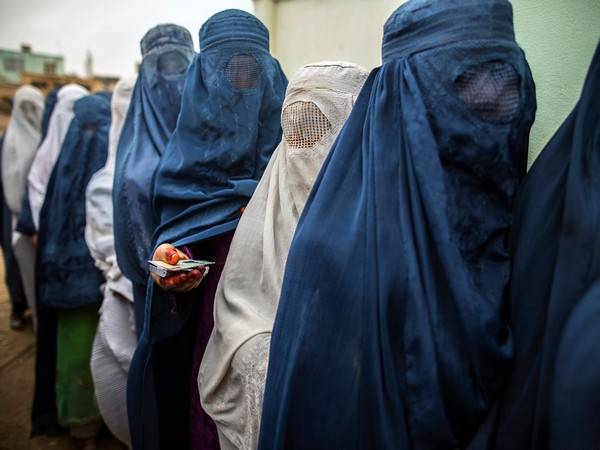
“Afghan women have the right to express their views on any matter, especially when their most basic rights – to study, work, and even leave their own homes – are in jeopardy,” said Heather Barr, associate women’s rights director at Human Rights Watch. “The Taliban compound the abuses they are committing against women when they also deny them their right to speak out.”
The women interviewed expressed particular concern that the Taliban would again enforce the policy of requiring them to have a mahram with them whenever they left their home, as the Taliban did when they were previously in power, from 1996 to 2001. This requirement barred women from most public life, cut them off from education, employment, and social life, and made getting health care difficult. It also and made them completely dependent on male family members, blocking them from escaping if they experienced abuse at home.
Zabiullah Mujahid, a Taliban spokesperson, said in an interview in Kabul on September 7 that being accompanied by a mahram would only be required for travels longer than three days, not for daily activities such as attending work, school, shopping, medical appointments, and other needs. But Taliban officials in Herat have not been consistent in carrying out the policy. Some of the women interviewed said that Taliban fighters had stopped them on the streets, at universities, and other public places, and barred them from going about their business if they were not accompanied by a mahram.
“The experience of women in Herat raises grave concerns about the extent to which the Taliban leadership in Kabul is able or willing to control the actions of their members across the country on human rights, including women’s rights,” Kazem-Stojanovic said. “The Taliban leadership should ensure that their statements upholding rights are respected in practice in all Afghan provinces. Claims by Taliban leaders to respect women’s rights will be meaningless if women and girls have to live in constant fear of abuse by the Taliban on their street.”
Afghan women interviewed described the Taliban takeover of Herat as a shocking surprise. “Every day we were dressing the way we dressed in the past, and we were getting ready to go to work, to our job and duties,” said a university professor. “And we were hearing reports of Taliban capturing districts, but it was impossible for us to believe that [the] Taliban could defeat [the] government.”
The women said that based on past experiences of living under Taliban rule or hearing about life under the Taliban from others, they were fearful as the Taliban gained control of the city. “Seeing the Taliban is horrifying,” a school director said. “My body shakes just seeing them.”
“The first days, I couldn’t talk, couldn’t show any emotion,” the university professor said. “Twenty years ran through my memory. I worried so much. I had to go to a psychologist. I had no hope and was depressed.” Several women said they were anxious about the disappearance of the police as the Taliban rolled into the city and feared that crime and violence would escalate. Reports that the Taliban had released the city’s prisoners heightened their fears.
The women said that the Taliban who took charge of the city included people they knew and who also knew them. A professor discovered that one of her students was the sibling of a Taliban member. A student described a male classmate taunting women in the class chat group with his delight over the Taliban’s triumph.
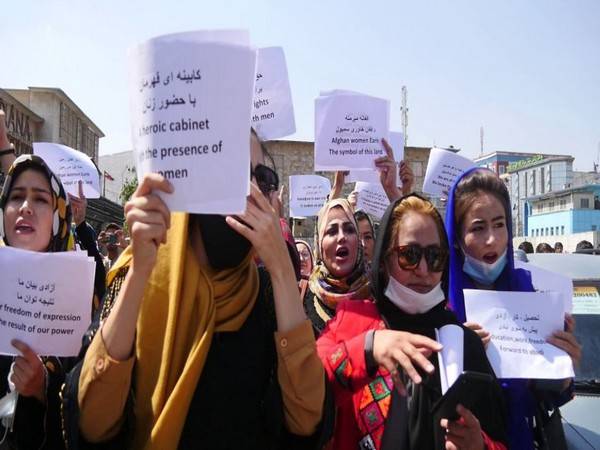
A teacher said she fled from fighting in her area to what she thought would be the safety of her in-laws’ home, only to find her brothers-in-law jubilant over the Taliban’s triumph. “I thought they were friends, but they [were like the] Taliban,” she said, adding that they insisted that her 10-year-old daughter had to wear a long veil. “My brothers-in-law turned against me,” she said. “They told me to wear a burqa. …They were telling me, ‘You made a lot of efforts for 20 years, and what is that? Your work was useless, baseless, and Sharia [Islamic law] is victorious.’ Things like that.”
Others worried that acquaintances might report them to the Taliban. “I fear people might tell the Taliban about me regarding complaints I have made over the years about men and people who have harassed my students,” the school director said.
Interviewees described a frantic scramble to conceal evidence of their prior lives and activities that might lead to reprisals against them and others, should it fall into the hands of the Taliban. Taliban forces have in the past committed reprisals against people seeking to educate girls. “I had to run to my school and hide everything,” the school director said. “Photos, awards, certificates on the halls of the school. Prizes we had won. I called co-workers to come help collect it all, put them in boxes, and put them away.”
Women feared not only for themselves, but also that the Taliban might target their family members in retaliation for their women’s work and activism. The Taliban have a history of abusing family members of people they seek to punish.
The women interviewed said that they had heard reports that the Taliban had searched for at least some women’s rights activists and high-profile women in Herat, and one of the women had seen her own name on a Taliban flyer. One woman said that elders in her neighborhood told her that the Taliban had come to them with a list of 25 high-profile women, including her, and had asked them for help finding those women. The elders said they protected her by saying they did not know her. “Those 25 were with big organizations, government offices, and were reporters, civil society activists, and those who spoke against the Taliban in the media or criticized the Taliban – they said all were listed there.” She named several high-ranking female members of the former provincial government whom she said were also reportedly listed.

A professor active in women’s rights said: “Now when I go out, I have the veil on. I cover my whole body and I try to be very organized not to be recognized because I heard and I see that the Taliban are in a clash with those women and girls who were previously active and civil society activists, and they do not like those women and girls. They consider those women and girls to be not Muslim and things like that.”
The frantic rush by many Afghans to Kabul’s airport after the Taliban takeover included women’s rights activists and high-profile women who feared being targeted. In Herat, the Taliban takeover happened so swiftly and unexpectedly that there was almost no chance to flee, as the airport closed abruptly. Some women interviewed said that they feel they have no choice but to flee the country but are unsure of when and how that will be possible, and whether they will be able to remain safe until they can escape.
One woman was able to flee the city by bus but said that she was able to do so only because she was accompanied by a mahram. The bus driver was not allowing women onto the bus without a male relative for fear that the Taliban would punish him. She described feeling terrified as they passed through checkpoints in various provinces.
“I want to leave Afghanistan; my life is not the same,” a woman running a school said, but she did not know how this would be possible. “All the borders are closed. It is not easy to get into Iran now, and there are no flights out of Kabul.”
Others wrestled with whether to stay or go. “I have never been out of the country,” a professor said. “And I really do not want to leave the country. But you know, if the situation stays like this, and that results in threats to my family and myself, then I’ll have no other choice than leaving the country.”
Overnight, women in Herat found themselves virtual prisoners in their own homes. “I used to be out from 8 a.m. until late afternoon for work, teaching, and social activism reasons,” one woman said. “I was one of the courageous ones. Now I haven’t been out except for taking my mom to the hospital and for that, I had to go with my brother.”
A university student who had left her home only twice since the Taliban takeover said, “It’s not ordinary; you have no studies, no lessons, nothing. Just looking at the walls. And this is like a prison, and it did cause depression for us and most of the women and girls that I speak with.”
A homemaker living outside Herat city said she used to travel alone by bus into the city, but can no longer do so without a mahram and a burqa, so she does not go: “We used to go to friends’ houses, to the store, to the park, the river, and to other recreational places…. We can’t even leave the house now. I used to go with my girls, now I can’t…. In the past, we used to leave the main door to our compound open but now we lock it.”
A professor described the gap that she sees between Taliban statements and the reality: “There is a big difference between the words and action of the Taliban: what they say in Dubai and Qatar, and what they do, actually, in Herat.… I don’t think what the leaders of the Taliban are saying in the media – international media – reflects exactly the things that you’re seeing in practice and how they behave with people.”
“A neighbour friend went to the store with my cousin,” a student said. “The Taliban stopped them and said, ‘Call your mahram.’ They had to wait in a street for an hour for the girl’s fiancé to come and then had to lie about him being the other girl’s brother.… The Taliban allowed them to leave and told them not to come out without a mahram.” Another woman described her colleague going to a government office to try to get a passport and being turned away because she was not escorted by a male family member. A student said that the Taliban rules give even boys power over the women in their families: “I have a 16-year-old brother. He can be my mahram under the Taliban rules. Even a 5 or 6-year-old boy can be a mahram to his mother or sister.”
Even if the Taliban only occasionally stopped women who went out without a mahram, women and girls still feel insecure and are unable to leave their homes, including to commute to school or work, cutting them off from daily activities. The professor said:
I was a brave woman, and I didn’t think I would be like this. I think I lost my morale and courage now, and I haven’t been out of the house or home [by myself] even once since the return of the Taliban.… I’m unmarried and my brother is out of the house, and if I need anything – medicine, food, and other items that are needed for the house – what should I do? How can I provide those things for myself?
She believed she would have no choice but to quit her job as her brother would not be able to escort her to and from work each day.
Two unmarried women said they now felt they had to consider getting married out of fear that they will not be able to work or move around the city anymore without a mahram. “I don’t want to get married,” a woman in her early 30s said. “I have more goals to accomplish, I don’t want to be forced into a marriage. The life I imagined isn’t going to happen.”
Another woman considering marriage said: We are currently looking at a situation where we don’t have freedom, we don’t have food, we don’t have independence.… I have to find a scenario for my life. And the traditional scenario in Afghanistan is this [getting married]. I decided wisely not to get married and to work for women and the long-term goals that I have, so there is equality in the society. And now? What should I do now?
Dress Codes
Another factor keeping women from leaving their homes is the fear of Taliban harassment over their clothing, and lack of clarity regarding the Taliban’s rules regarding women’s dress. When the Taliban gained control of the city, women were suddenly afraid to go out wearing less than the full covering the Taliban had demanded when in power 20 years ago. Some women said they rushed to buy a burqa from the bazaar because they had never owned or worn one before.
Taliban leaders in Kabul have not provided clear guidance on what women should wear, aside from general statements about the need for women to observe hijab and some specific, and very restrictive, guidance for women participating in higher education. Meanwhile, Taliban fighters in Herat are imposing their own rules, which are often very restrictive.
A teacher said that an armed Taliban member stopped her on the street and told her to wear a face covering and to cover her hands. Her husband responded apologetically to the fighter, saying she would obey. The teacher said she wanted to object but her husband did not let her speak: “My husband said, ‘If you spoke there the Taliban would have beaten me and you, and nobody would say anything. So it’s better that you were silent.’ So, in that way I didn’t say anything.”
A professor said someone she knew was stopped on the street for wearing shoes that exposed her bare feet. “The Taliban member fired some bullets and shots so close to her feet and warned her that she should not come out like that or dress like that in the future,” she said. “And that incident really shocked the whole of Herat, and it gave a lesson to all the women of Herat that a woman should wear socks and that women should wear those long veils … and should cover the whole body.” Men also faced restrictions, being told by the Taliban that they must only wear traditional – not Western – clothing.
Access to Employment
Barriers to women’s freedom of movement and fears of Taliban abuses have directly affected women’s ability to work. Fear of armed Taliban members in the streets and that they will enter workplaces has left many women in Herat scared of going back to work, even after primary schools and businesses reopened on September 4. “I have only gone to work four days in the past month because I am afraid the Taliban will come looking for me at my job because I was part of the protests,” said a school employee.
There are also new direct restrictions on women being permitted to work. The Taliban have said that some women are permitted to resume their jobs, especially if they work in health and education. However, the women interviewed said that many female teachers who taught boys after sixth or seventh grade have been dismissed from their jobs. The Taliban have imposed new restrictions related to gender segregation, limited roles for women, and made changes in permissible women’s dress that limit women’s ability to fully participate at work and violate their right to free expression.
One woman visiting her university to get a copy of her diploma found that classes were suspended but offices were open. “They have separated the offices for men and women, and there is a curtain in the corridor,” she said. “On one side, there are women and on the other side the men.… There were three women, all of them having [surgical] face masks [to prevent Covid-19].” A school employee said, “We may be able to work but our dreams are zero now. We can’t raise our voices anymore.”
Several women said that their immediate fear was being unable to work. Without employment, their families lose crucial income needed to survive at a time when the United Nations Development Program warns that 97 percent of Afghans could be below the poverty line by mid-2022. “Until our women can go back to our work, we won’t support the Taliban regime,” an activist said. Desperation about being able to work was the main factor prompting the protests women organized in Herat on September 2 and 7.
Women have also been affected by the many men who have lost their jobs or cannot find work. “There is no work,” the homemaker said. “All the jobs are closed, especially for illiterate workers … There is no fighting. But there is fear, men and women are fearful.”
Access to Education
Secondary schools in Herat and the rest of the country have remained closed for girls, although they reopened for boys on September 18. “Still no girls and boys past sixth grade [the last grade in primary school] are going to school.” a professor said before boys’ schools reopened. “They want to paralyze society.”
Even before the Taliban issued new rules, the Taliban and school officials had already informed women who taught older boys that they no longer have jobs. “I was a teacher at a boys’ school for grade nine,” one teacher said. “I’m not allowed in my school anymore.” She said the provincial education director explained the new rules: no women may teach boys above grade six or seven, and all staff of the school have to be the same gender as the students. “Even the doorkeeper of the school is not allowed to enter a girls’ school if it is a man, or, if it is a woman, she cannot enter a boys’ school,” she said. She said the majority of the female teachers at her school had been dismissed because of this new rule.
Women teaching at universities had been told that they may only teach women, and several of those interviewed raised concerns that the Taliban will ban women from studying some subjects, such as law.
Women’s fear of going to work or inability to travel without a mahram has also disrupted education for students of female teachers. “I haven’t been to the university since [the Taliban takeover],” a professor said, adding that many of her students call her. “When they speak with me, they are not in a good condition. They are distraught, crying, and things like that. They’re saying that they belong to a generation that is so unlucky and living in darkness and uncertainty. And I don’t have any answer to the kinds of questions they raise, really.”
As Taliban forces entered Herat, networks of women who had worked together for years advocating women’s rights quickly dispersed. One woman cried as she described a chat group she belongs to with other activists: “After the return of the Taliban, everybody was silent. And they were leaving the group’s virtual chats…. I was telling them, ‘Don’t leave! You are leaders, you are fighters, you should not submit so easily!’ But they deactivated their Facebook pages, and they removed all the pictures from their profile pictures. So suddenly silence conquered everywhere.”
A woman living outside the city said: “I was in our village women’s shura [council] and we had programs and projects. We had a budget as well. We were active right until we found out that the Taliban were coming. The women know the Taliban will not agree with these activities.”
Within days, however, some women began contacting each other searching for solutions. “A group of women went to the provincial headquarters to meet with the Taliban representatives,” an activist said. “They wanted to demand their rights back.”
The women first sought a meeting two days after the Taliban took over the city. They were initially refused but were granted a meeting two days later with a lone Taliban official. He seemed deeply uncomfortable, telling them it was a sin for him to hear a woman’s voice or meet with women. “We had questions like, when can we go back to our offices? And when would the universities open?” an activist said.
Women leaders were eventually able to have some discussions with two Taliban officials, but without significant concessions or assurances on the issues the women were concerned about: their freedom of movement, especially whether they would need to have a mahram with them at all times; whether they would be able to work, in what occupations, and how soon; and whether girls and women would be able to continue their education, at all levels and in all disciplines.
The response from the officials was to lecture them that they should leave their homes only when absolutely necessary and with a male family member. For unmarried women who did not have a male family member, they suggested the solution was to marry. Employment for women, the women were told, would be permitted only in areas in which the Taliban felt it was necessary for women to do jobs, presumably some education and healthcare roles working with girls and women. The officials emphasized that the Taliban had made a concession by allowing girls even primary education and said girls could have basic education by learning to read and write, and that would suffice. They urged the women to support the Taliban and warned of harsh action if they opposed the Taliban or protested.
After the meetings with the Taliban officials, the activists felt they had no choice but to protest. One woman said, “The group of women I was with today cried and said, ‘Why are we left in this position after 20 years and millions of dollars spent on women’s projects and programs?’”
They said they had enormous fears about how the Taliban would respond. One messaged an author of this report the night before the first protest, saying the women felt they could not live under these conditions anymore. She said she was writing to say goodbye in case something happened, and she was killed the next day.
Women participating in the first demonstration, on September 2, did not face abuse and the protest ended peacefully. But the Taliban responded to the second demonstration, on September 7, with violence. Taliban fighters lashed protesters with whips and fired indiscriminately to disperse the crowd, killing two men and wounding at least eight bystanders and participants. Taliban attacks on protests by women’s rights activists in other cities escalated in the following days, with beatings directed at protesters and journalists covering the protests and shooting in the air. On September 8 the Taliban banned protests conducted without prior approval from the Justice Ministry.
HRW Recommendations
The Taliban should fully respect all women’s rights and ensure full gender equality in accordance with Afghanistan’s obligations under the International Covenant on Civil and Political Rights, the International Covenant on Economic, Social, and Cultural Rights, the Convention on the Elimination of All Forms of Discrimination against Women, and other human rights treaties to which Afghanistan is a party.
As urgent interim steps, Taliban leaders in Herat should:
Clarify that women and girls are free to leave their homes at any time, alone or with others, and dress as they choose, with no need to be accompanied by a mahram;
Appropriately discipline Taliban members and supporters who harass and intimidate women and girls, and establish a meaningful system for women and girls to report abuses;
Reopen government secondary schools and universities to women and girls, and encourage and facilitate the reopening of private educational institutions for girls and women;
Permit all women to participate in any form of employment.
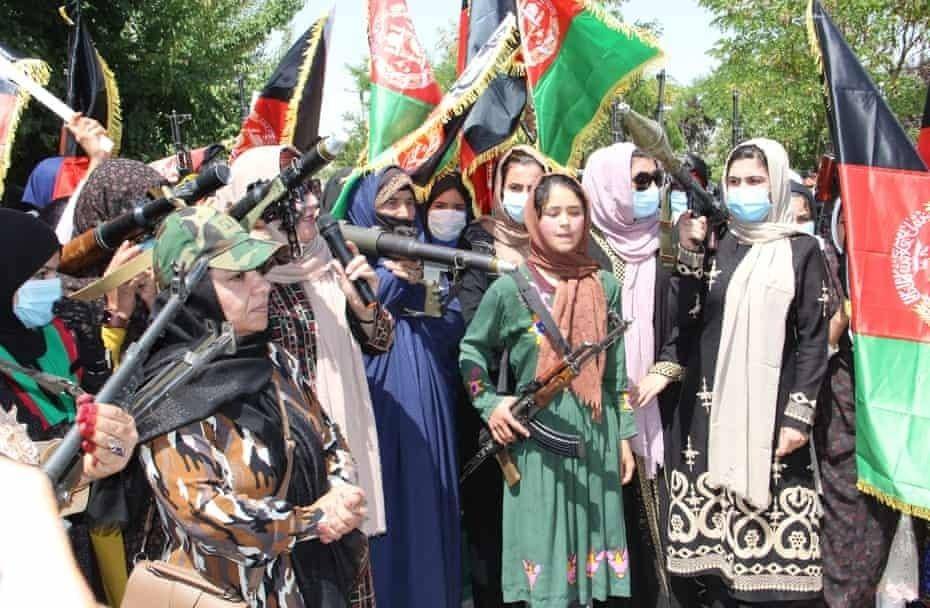
READ MORE: Food insecurity rises in Afghanistan: UN body
READ MORE: $45 mn released for Afghanistan’s healthcare system

